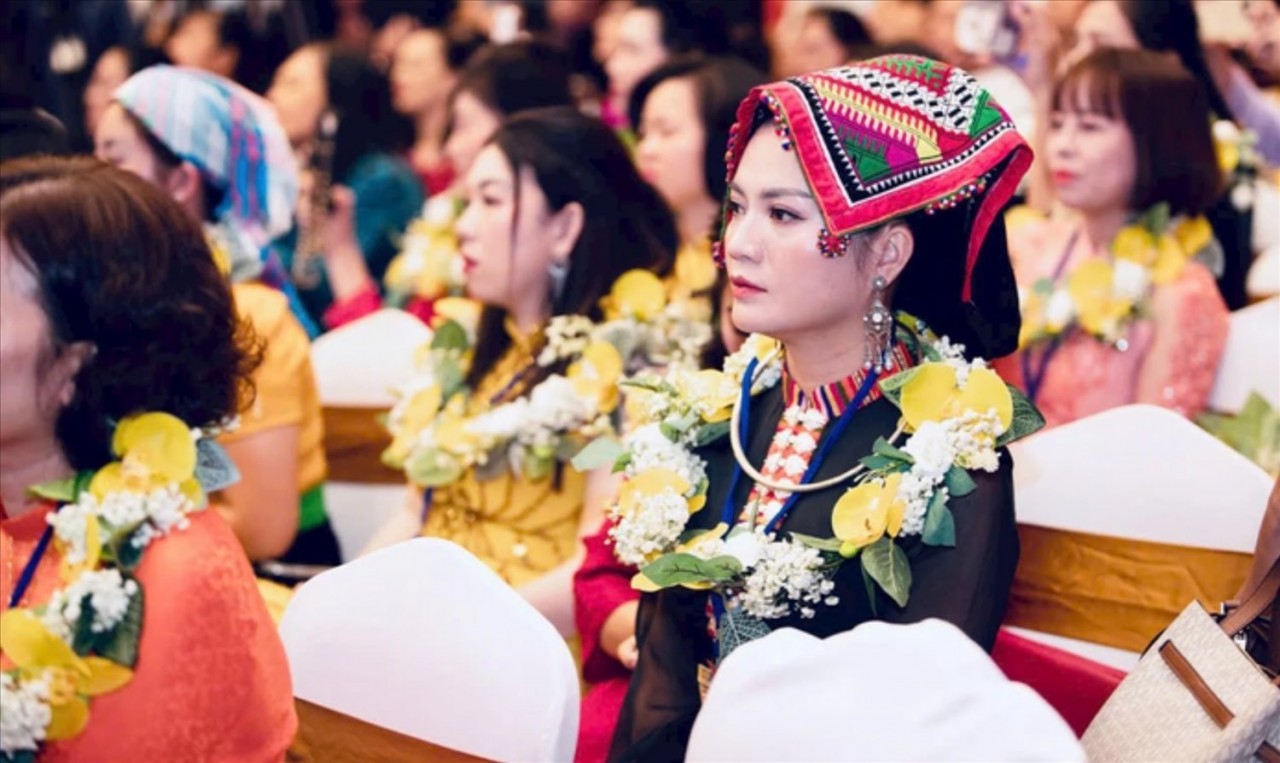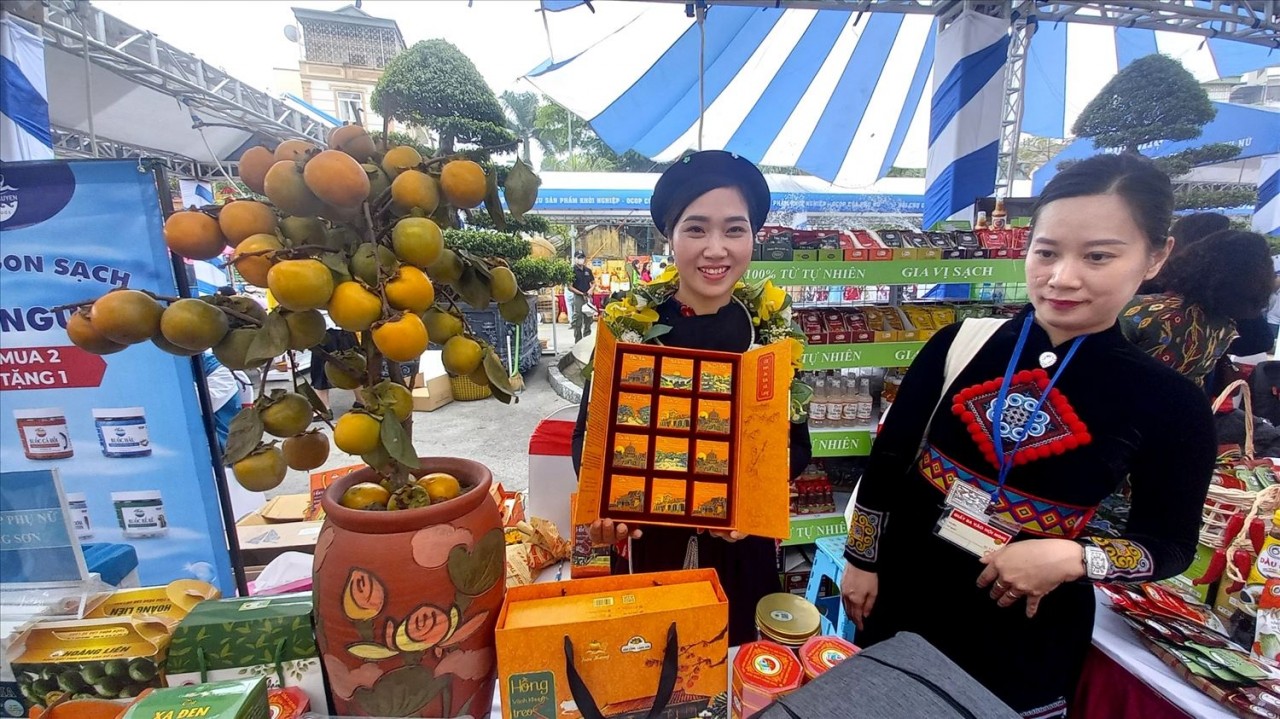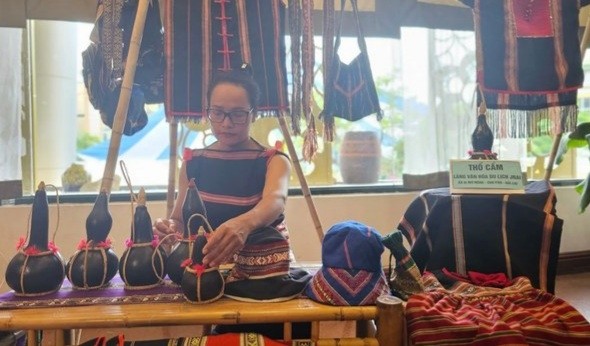
Ethnic minority women spread entrepreneurship
Latest
 |
| Many ethnic minority women spread the spirit of overcoming difficulties for creative startups. (Photo: Baodantoc.vn) |
In recent years, with support from the Vietnam Women’s Union at all levels, many women have successfully started businesses thanks to their own efforts. From the activities of the Government Project “Supporting women’s startups in the period 2017 - 2025”, the Union at all levels has encouraged and supported ideas and projects associated with the establishment of cooperative models and groups that are managed by women, and created jobs for female workers. During the period 2017 - 2025, the Union has supported the establishment of more than 800 cooperatives and 10.000 cooperative groups managed by women.
At the 2023 Women's Start-up, Promoting Indigenous Resources Contest organized by Vietnam Women’s Union, various projects by ethnic minority women were selected and won high prizes. Among the 33 startup projects selected for the national final round, 7 projects were implemented by ethnic minority women (accounting for 21.2%). These are all projects or ideas that are innovative, capable of registering intellectual property and commercialization, and have the potential to enhance the value of indigenous resources, create jobs and empower women.
As the winner of the 2023 Women's Start-up, Promoting Indigenous Resources Contest, Ms. Vuong Thi Thuong, Director of Toan Thuong Cooperative (Lang Son province) is well-known for building an effective model of growing persimmons, creating stable jobs for more than 30 ethnic minority women with an income of about 9 million VND per month.
Sharing about her business model, Ms. Thuong said: Born and raised under the persimmon tree, I understand the hardship of farmers growing delicious, crispy, and sweet persimmons, but they are against the fear of “losing the price for a good crop, losing a good crop for the price”. Besides, persimmon is a succulent fruit, difficult to preserve for a long time and easily damaged when transported long distances, so there needs to be a way to process persimmons to overcome these limitations.
 |
| With the startup idea from dried persimmons, Ms. Vuong Thi Thuong is the winner of the 2023 Women's Start-up, Promoting Indigenous Resources Contest. (Photo: Baodantoc.vn) |
Ms. Thuong said that since 2017, she has researched and made batches of dried persimmons but all failed. One time, she lost over 1 ton of persimmons because they were moldy, damaged, and the stems fell off during testing due to the different source of fruits, temperature, and climate of Lang Son and Lam Dong provinces.
Not discouraged by failure, in October 2021, she went to Lam Dong to learn experience in producing dried persimmons. She was guided and shared experiences, as well as the production process of dried persimmons using Japanese technology. While working, drawing on experience, and adjusting the formula, up to now, Toan Thuong Cooperative has successfully produced dried persimmons and initially has quality products to supply to the market.
Ms. Thuong also boldly established Toan Thuong Agricultural Cooperative, building a factory with a total area of over 1.000 m2, including a preliminary processing area, dried persimmon greenhouse, cold storage, and purchasing additional machines and equipments, such as peeling machine and vacuum cleaner, with a total cost of over 1 billion VND. Her Cooperative purchases products for 10 persimmon-growing households in the commune, creating jobs for dozens of workers. On average, 500 tons of fresh persimmons are sold each month, distributed in Northern localities.
In the 2022 permission crop, the Cooperative has linked consumption with 10 households and 2 cooperatives with a total area of 20 hectares planted organically, with an output of 160 tons per year. It is expected that in 2023, the Cooperative will process 150 tons of fresh persimmons, yield 30 tons of finished products, sales will reach 12 billion VND, and profits will be approximately 5 billion VND per year.
Or like the idea of “Jrai Cultural Tourism Village, la Mo Nong commune” by Ms. H’Uyen Nie. She has connected to consume products, contributing to preserving the traditional profession of Jrai people and creating jobs for women members, helping women change their thinking, working methods, rise for business, and know how to accumulate, preserve, and promote the traditional cultural beauty of the nation.
 |
| Ms. H’Uyen Nie’s idea of “Jrai Cultural Tourism Village, la Mo Nong commune” has connected to consume products, contributing to preserving the traditional profession of the Jrai people and creating jobs for women members. (Photo: Baodantoc.vn) |
Ms. H’Uyen is of the Ede ethnic group, born and raised in Krong Bong commune (Dak Lak province). Originally an artist working at the Dam San General Music and Dance Theater, she got married and followed her husband to live in la Mo Nong commune, Chu Pah district (Gia Lai province).
When she first came to “be a bride”, Ms. H’Uyen encountered difficulties and confusion as the customs, practices, the way of living and rituals of the Ede and Jrai ethnic groups had many differences. However, she learned Jrai language to communicate with people and buy cakes and fruits to campaign for the Union’s movement. Thanks to her closeness and simplicity, wherever she goes, she is cherished by her people.
In 2017, when applying to transfer to work at the Woman’s Union of la Mo Nong commune, she realized that many women in the commune still maintained traditional brocade weaving so she discussed with the Executive Committee of the Commune Women’s Union to advocate for the establishment of the Brocade Weaving Club (the Club). She shared: I also want to help women in the commune make similar products, both preserving traditional culture and developing the economy”.
In August 2019, the Club launched with 30 members, aged from 19 to 60. In addition to money from selling brocade and brocade souvenirs, such as wallet, handbags and scarves. Not only weaving brocade, Ms. H’Uyen also mobilized women in the commune to clean their houses to do community tourism and generate income for the family.
Ms. Nie said: “The ethnic minority area of Chu Pah district still preserves many precious tangible and intangible cultural heritages, such as: gongs, ethnic musical instruments, along with various types of folk cultural activities, community activities, and architectural spaces with unique aesthetic value. Besides, traditional cuisine has typical and attractive dishes and that is also the reason for my startup idea”.
From creative startup ideas, with a strong entrepreneurship and the desire to start a business, women in mountainous areas and ethnic minorities have surpassed themselves, proving their wishes to rise in life.
Sharing about this issue, Vice President of Vietnam Women’s Union Tran Lan Phuong affirmed: Startup projects or ideas at any level of participation show passion, enthusiasm, desire, and the spirit of innovation in production and business of affluent classes of women.

















